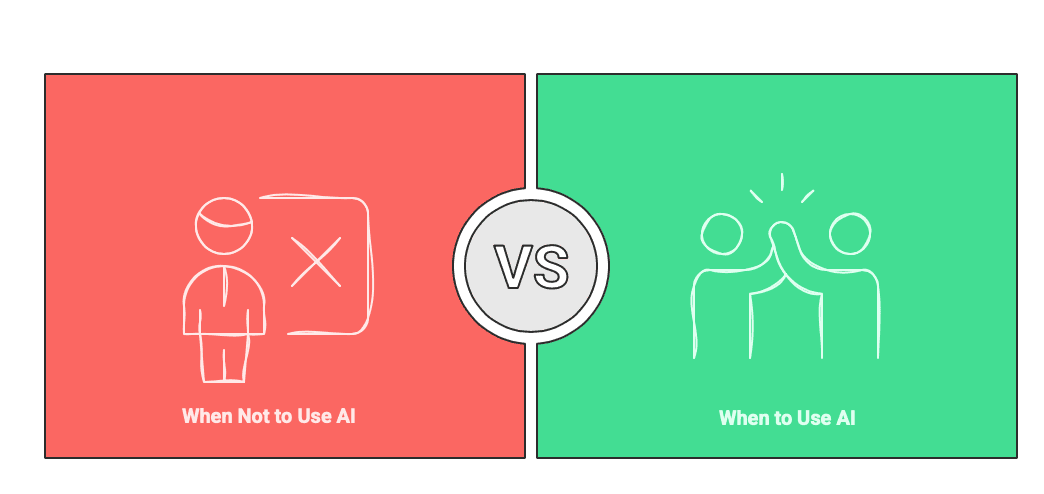When Should You Use AI—And When You Shouldn't
Published on

We live in a world filled with Artificial Intelligence. When OpenAI launched ChatGPT in November 2022, people jumped in, testing its limits with prompts. Since then, many other powerful AI assistants and generative tools have appeared.
Each AI tool serves a different purpose. Some help you with daily tasks, while others can write code, edit photos and videos, create music, or even build an app using simple prompts.
It is amazing, right? But wait!
There’s a thin line between getting help from AI and letting it do everything for you. If you depend on AI for every task from A to Z, you might be missing the point.
You could argue, “Isn’t that the whole purpose of AI? To do everything so I can focus on other things?” Good question.
Here’s my perspective on when you should, and when you shouldn’t use AI.
When Not to Use AI
I will start with Not-to-use because I believe most people fall into this group.
- You want to build a Python app. You don’t know anything about programming, and you don’t even intend to learn. You provide a prompt to create a Python-based app based on your requirements.
- You need to create a presentation. You don’t know anything about the topic. You ask AI to create it for you, just because you have to submit it tomorrow.
There are plenty more examples like these. Sure, AI did the work for you, and you moved on. But what did you learn?
Did you learn how to write code? Did you understand the topic? Did you grow in any way?
Of course not.
You became fully dependent on AI and skipped the core value: learning.
When to Use AI
By now, you probably know what I am trying to say. You should use AI after you understand the task or topic.
Here are some scenarios where using AI makes sense:
- You already know the basics of Python. You use AI to build a Python-based application.
- You are learning HTML. You ask AI to guide or explain the syntax.
- You are creating a presentation, and you are already aware of the topic. You ask AI to create and organize the slides.
- You have written an email or post. You can use AI to check grammar or improve clarity.
In these scenarios, you are using AI with a valid purpose. You are learning.
Final Thoughts
I know that you will come up with exceptions, and I agree. There are scenarios wherein you do not require in-depth knowledge, for example, logo creation, generating voiceovers, generating pictures and many more things. These tasks are made convenient by AI, which lets you save time and produce excellent results.
AI does almost everything. If you skip the learning part, you won’t grow your skills or understanding. You will only get good at writing prompts.
Even if you disagree with what I shared, try reading and analyzing what AI produces. You will start learning naturally.
Also, as someone with experience in cybersecurity, I would also like to share that Large Language Models (LLMs) might have known vulnerabilities, and blindly relying on them may result in risks and dangers. Anyway, this topic is for another blog post, but this post shows why learning still matters.
Happy learning! 🙂

This work is licensed under a Creative Commons Attribuition-ShareAlike 4.0 International License .
